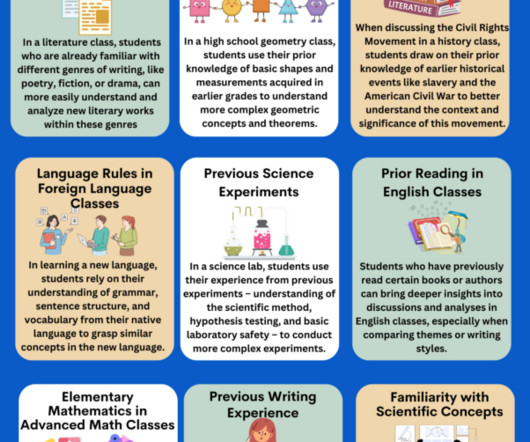What Is Prior Knowledge and Why it Matters?
Educational Technology and Mobile Learning
DECEMBER 23, 2023
This term refers to the pre-existing cognitive framework that each student brings into the learning environment, encompassing everything from factual information to deeply ingrained skills and misconceptions. References and further readings Binder, T., What is Prior Knowledge? Sandmann, A., Sures, B. Thompson, R.














Let's personalize your content